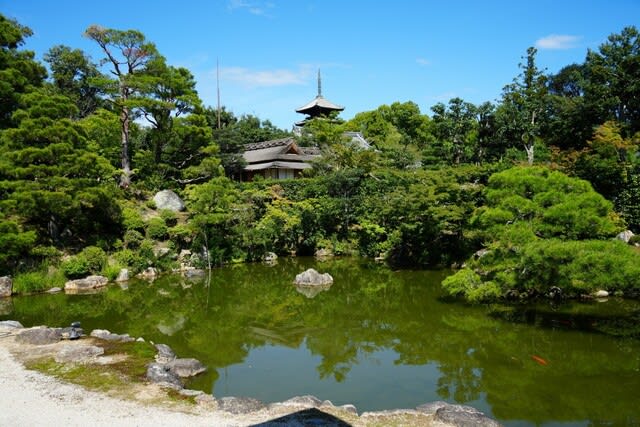(Emphasis in the text other than the headline is mine.
Slackness in Japanese politics is striking.
On October 13, three days before the opening of the Chinese Communist Party Congress, a banner reading "Remove Xi Jinping, the public enemy of dictatorship" was hung on an overpass in Beijing.
Although the authorities hurried to remove the banner, the image spread on social networking sites and became international news (the rules soon made the flag unavailable for viewing in China).
The hero who did a desperate act was detained by the authorities on the spot and taken away by car.
In Japan and other liberal countries, this would be a caution for violating the Road Traffic Law.
However, in China, where the deification of Xi Jinping is progressing, he will likely be charged with a felony after undergoing torture, such as "saying all the names of his comrades."
According to Cai Xia, a former CPC Central Party School professor who defected to the U.S., the perpetrator (a man) is Peng Lixuan, who goes by the handle "lifa_Petter."
We must support him so that he can somehow survive and face the time of liberation.
If the international community does not speak out, he will be abused to death in prison.
Speaking of "the public enemy," in Japan, Seiichiro Murakami, a member of the Liberal Democratic Party who pandered to the left and boycotted a national funeral, even called former Prime Minister Abe "the public enemy," which was indeed a violation of party rules.
One would think that Murakami would have been prepared to make such a statement. Still, when the party's Disciplinary Enforcement Committee was about to meet, he submitted a perfunctory "apology," showing his lingering regret for his party affiliation. It is nothing short of petty.
The party's Disciplinary Committee, which was supposed to take a strict approach to the matter, eventually settled for a lenient one-year suspension from party membership, even though "most of the committee members demanded severe punishment, such as suspension of party membership or expulsion from the party.
The entire process, from the "the public enemy" comment to the punishment, was a monkey show that did not indicate any seriousness.
Naturally, China, Russia, North Korea, and other nations are likely to take the LDP more and more lightly.
Among the anti-Abe forces in Japan today, the most significant generational mass is the "elderly Abegers" who were involved in the "Zenkyoto" movement at the end of the 1960s. Their mentality is also noticeably lax.
School conflicts were also flourishing in the U.S. at the time, but there was an aspect of resistance to the draft to fight the Vietnam War with their lives on the line (as is now becoming the case in Russia).
In Vietnam, 58,000 U.S. soldiers were ultimately killed and 288,000 seriously wounded.
It was different from the revolutionary games of Zenkyoto, which were merely monkey imitations in the safe zone.
These leftist students in Japan shouted, "smash the Security Treaty." Still, in reality, they are living in peace, protected by the Self-Defense Forces and the U.S. military, living on relatively privileged pensions, and dissipating their surplus energy in "smash Abe's funeral" demonstrations and other such activities. It is said that many of the elderly Abegers are former teachers of the Japan Education Association, and this is quite understandable.
Typical "honor students" who accepted their anti-military and anti-U.S. leftist education without any critical spirit shouted, "Abe is not a human being. I'm going to beat him to death," shouted Jiro Yamaguchi, a faculty member at Hosei University.
Prime Minister Abe showed great patience in his response to the persistent obstruction of speeches by this type of Abeger, saying, "We cannot afford to lose to these people," when he would typically have dismissed them as such.
The Asahi Shimbun summed up the Abe administration's intolerance of dissent and hostility to criticism as one of its hallmarks.
If we allow unfair criticism to continue, debate, which is the basis of a democratic system, will not occur.
Even if the LDP lawmakers want to pursue the government, they are told, "It's OK to do it with the party's policy, but please don't do it in the Diet.
It is difficult for LDP members to go after the administration in depth.
The parliamentary cabinet system cannot function if the opposition parties are stupid.
The Constitutional Democratic Party of Japan (DPJ) also has self-proclaimed conservatives, led by former Prime Minister Yoshihiko Noda.
However, they have been overwhelmed by leftists such as Kiyomi Tsujimoto and Renho, who sell their "pettiness" (Rurei Miura's comment), and are constantly shrinking back.
Even if they have a modest number of members, they cannot be a political force if they lack the strength to fight.
On September 17, in a speech commemorating the 100th anniversary of the founding of the Communist Party, Kazuo Shii, chairman of the Communist Party, declared that the party would continue to raise the banner of abandoning the Security Treaty.
On the other hand, he also said that if Japan were to be invaded, he would ask the "unconstitutional Self-Defense Forces" to "do their best."
The Communist Party is saying that it should sever ties with the U.S. military, fight alone with the Self-Defense Forces, and protect the lives of its own Communist Party members.
They are irresponsible, selfish, and "incoherent" themselves.
If they want us to listen, they must be slightly more rational in their "objections."














